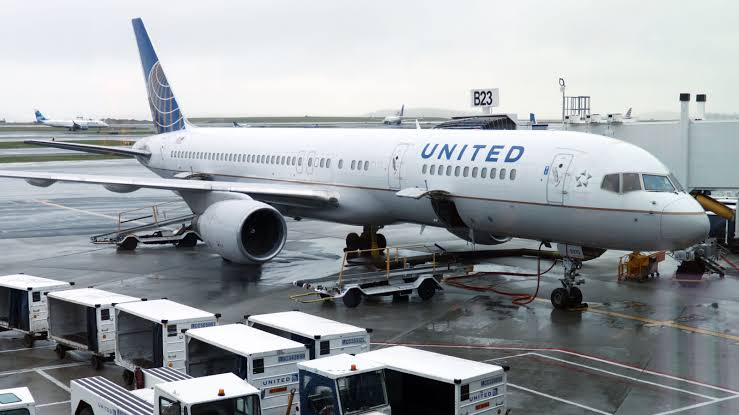“United Airlines Fined $1.9 Million for Record-Breaking Tarmac Delays”
United Airlines Fined $1.9 Million for Record-Breaking Tarmac Delays: A Comprehensive Analysis
United Airlines, one of the largest and most recognized carriers in the United States, has been slapped with a staggering $1.9 million fine by the U.S. Department of Transportation (DOT). This penalty, announced in August 2024, is for violations involving extensive tarmac delays, which have inconvenienced thousands of passengers. The fine is notable not just for its size but also for what it represents—a culmination of ongoing concerns about how airlines handle prolonged ground delays. This article delves into the specifics of the fine, the regulatory framework surrounding tarmac delays, the impact on passengers, and what this penalty means for the future of air travel.
Background of the Fine
The fine of $1.9 million is among the largest ever imposed on a U.S. airline for tarmac delays. According to the DOT, the penalty stems from 20 different incidents between December 2015 and February 2022, where United Airlines allegedly left passengers stranded on the tarmac for excessive amounts of time without giving them the opportunity to deplane. The longest of these delays reportedly stretched over five hours, far exceeding the federal limit of three hours for domestic flights and four hours for international flights.
The investigation revealed that United Airlines violated federal rules designed to protect passengers from such prolonged delays. Under the DOT’s regulations, airlines are required to allow passengers to disembark if a tarmac delay exceeds the three- or four-hour threshold unless safety or security concerns prevent this. United failed to meet these requirements, resulting in significant passenger discomfort and disruption.
Regulatory Framework: Tarmac Delay Rules
The DOT’s tarmac delay rules were introduced in 2009 as part of a broader effort to enhance passenger rights. These regulations, known as the “Tarmac Delay Rule,” mandate that airlines must provide passengers with an opportunity to deplane after three hours for domestic flights and four hours for international flights. Additionally, airlines are required to provide adequate food, water, restrooms, and medical attention during extended delays.
The rules were introduced in response to public outrage over several high-profile incidents where passengers were trapped on planes for hours without the ability to disembark. The DOT’s regulations were seen as a way to curb such incidents and hold airlines accountable for the welfare of their passengers. Since their implementation, these rules have significantly reduced the number of extreme tarmac delays, though the recent fine against United Airlines shows that violations still occur.
Impact on Passengers
Tarmac delays are among the most frustrating experiences for airline passengers. Being stuck on a plane for hours, often with limited communication from the crew, can cause significant stress, especially for those with connecting flights, medical conditions, or other urgent needs. In some cases, the lack of basic amenities like food and water can exacerbate the situation, leading to heightened discomfort and even health risks.
For United Airlines passengers affected by these delays, the experience was undoubtedly harrowing. Reports from some of the flights indicate that passengers were left in cramped conditions without sufficient updates from the crew. In one case, the delay occurred during a severe snowstorm, causing additional anxiety among passengers concerned about safety. The DOT’s fine serves as a recognition of the impact these delays had on passengers and reinforces the importance of adhering to regulations that prioritize passenger welfare.
United Airlines’ Response
In response to the fine, United Airlines issued a statement expressing regret for the incidents and reiterating its commitment to improving its operations. The airline noted that it has implemented new procedures and training programs to prevent future tarmac delays. United also emphasized that the incidents in question represent a small fraction of the tens of thousands of flights it operates each year and that the airline is focused on minimizing disruptions to its passengers.
However, the fine has also drawn attention to the broader challenges facing airlines in managing operations during severe weather or other unexpected events. United, like many other airlines, has faced increasing scrutiny over its handling of irregular operations, and this fine adds to the growing pressure on airlines to improve their response to such situations.
Industry Implications
The $1.9 million fine against United Airlines is a reminder to the entire airline industry of the importance of compliance with federal regulations. Tarmac delays are a significant pain point for passengers, and airlines that fail to manage them effectively risk not only financial penalties but also damage to their reputation. The DOT’s actions indicate that it is serious about enforcing the Tarmac Delay Rule and that it will not hesitate to impose hefty fines on airlines that violate these regulations.
This fine may also prompt other airlines to review their policies and procedures for handling tarmac delays. In an industry where margins are thin and competition is fierce, the cost of non-compliance can be substantial. Airlines will need to balance the operational challenges posed by unexpected events with their obligation to provide a positive customer experience.
Moreover, this fine may lead to increased calls for more robust passenger protections. Consumer advocacy groups have long argued that the current regulations do not go far enough in safeguarding passengers’ rights. The fine against United Airlines may fuel efforts to strengthen these protections, potentially leading to stricter rules and higher penalties for violations.
The Future of Tarmac Delays
As air travel continues to rebound from the COVID-19 pandemic, the issue of tarmac delays remains relevant. Airlines are dealing with increased passenger volumes, labor shortages, and unpredictable weather patterns, all of which can contribute to delays. While technological advancements and improved communication tools have helped airlines manage delays more effectively, challenges remain.
For passengers, the United Airlines fine serves as a reminder of the importance of being informed about their rights. Passengers should be aware of the DOT’s tarmac delay rules and understand that they have the right to deplane after a certain period. Staying informed can help passengers advocate for themselves in situations where airlines may not be following the rules.
On the regulatory front, the fine may lead to renewed discussions about how to ensure that airlines adhere to the Tarmac Delay Rule. The DOT’s enforcement actions are crucial, but there may also be opportunities to improve the rules themselves. For example, some experts have suggested that the three- and four-hour thresholds could be shortened or that additional measures could be implemented to ensure passenger comfort during delays.
Conclusion
The $1.9 million fine against United Airlines for record-breaking tarmac delays is a significant development in the ongoing effort to protect passengers’ rights. It underscores the importance of compliance with the DOT’s regulations and serves as a warning to other airlines that violations will not be tolerated. For passengers, it highlights the need to be aware of their rights and to hold airlines accountable when those rights are infringed.
As the airline industry continues to evolve, the issue of tarmac delays will remain a critical area of focus. Airlines must prioritize the welfare of their passengers and ensure that they are prepared to handle delays in a way that minimizes discomfort and disruption. The United Airlines fine is a reminder that when it comes to passenger rights, there is no room for compromise.






